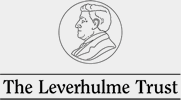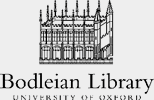Please contact Abigail Williams with any media enquiries.
The Digital Miscellanies Index and digital humanities
‘The internet has revolutionised humanities research. But has the development of ever-more sophisticated online resources freed up scholars to explore new ideas, or made them slaves to the digital machine? [...] The eighteenth-century equivalent of anthologies of cat poetry or poems to heal a broken heart were popular miscellanies of verse and song. Given the sheer bulk of the material [..] and the fact that it reflects what people actually wanted to read, it can clearly tell us a great deal about the literary marketplace, the cultural context for canonical authors, plus changing tastes and fashions. However, it has hitherto been largely neglected by scholars. The Digital Miscellanies Index is designed to remedy that. [..] projects such as these are a powerful example of what can be achieved by the digital humanities.’ Matthew Reisz, Times Higher Education Supplement, 8 December 2011.
The poem that wasn’t by Milton
How the discovery of a bawdy poem revealed a Royalist plot to smear the Puritan Milton
Dr Jennifer Batt of the Faculty of English Language and Literature rediscovered a crude poem attributed to John Milton, but probably not written by him, while sifting through the world's largest collection of miscellanies from the 18th Century. The Digital Miscellanies Index is a three-year Leverhulme-funded project which aims to make available online the world's largest collection of miscellanies, donated to the Bodleian Libraries by ragtime musician and avid collector Walter Harding. Dr Abigail Williams, project leader, said: 'The rhyme could have been written to discredit Milton, who had set himself up as a self-righteous puritan. The verse is saying, 'Actually, he was just as dirty as the rest of us'.' The Times, p.4, 23/09/2010, Ben Hoyle
www.thetimes.co.uk/tto/arts/article2737253.ece
From Paradise Lost to porn: did Milton write rude rhymes?
Article on the discovery of a new innuendo-laden poem attributed to John Milton but which was probably written to discredit the famous poet. Dr Abigail Williams, who is leading a project to digitise the collection of poetic ‘miscellanies’ in which the rhyme was found, said: ‘You could become very rich and famous – well, famous anyway – if you could prove the rhyme was really by Milton. I am pretty certain it is not.’ The Guardian, p.20, 23/09/2010, Charlotte Higgins
www.guardian.co.uk/books/2010/sep/22/john-milton-filthy-poem-oxford
Poetry regained: lost Milton work turns up in Oxford archives
Article on the discovery of a new poem possibly by John Milton in the Harding Collection in the Bodleian Library. Dr Jennifer Batt, the lecturer in English literature who discovered the new work, said: ‘To see the name of John Milton, the great religious and political polemicist, attached to such a bawdy epigram, is extremely surprising to say the least. The poem is so out of tune with the rest of his work that if the attribution is correct, it would prompt a major revision of our ideas about Milton. It is likely that Milton's name was used as an attribution to bring scandal upon the poet, perhaps by a jealous contemporary.’ The Independent, p.11, 23/09/2010, Richard Garner
www.independent.co.uk/news/education/education-news/poetry-regained-lost-milton-work-turns-up-in-oxford-archives-2087087.html
Our secret bestseller
The risqué secret behind an 18th-century bestseller
An Oxford University academic has attributed the success of The Works of the Earls of Rochester and Roscommon - one of the most reprinted miscellanies of the 18th Century - to a collection of pornographic poems hidden at the back of the book. Dr Claudine van Hensbergen of the Faculty of English Language and Literature made the connection between The Cabinet of Love and The Works’ success while cataloguing miscellanies in the Bodleian Library for Oxford University’s Digital Miscellanies Index, funded by a Leverhulme Trust Research Project Grant. The Independent, Rob Hastings, 04/02/11
www.independent.co.uk/arts-entertainment/books/news/the-risqu233-secret-behind-an-18thcentury-bestseller-2203844.html
Poetry bestseller boasts saucy secret in the bookbinding ... 18th century porn
Dr Claudine van Hensbergen, an English academic working on Oxford
Secret sex poems ‘key to 18th Century book’s success’
The success of two best-selling volumes of poetry published in the 18th Century was down to pornographic poems hidden in the book, an academic has suggested. Dr Claudine van Hensbergen of Oxford’s Faculty of English Language and Literature came across The Cabinet of Love in The Works of the Earls of Rochester and Roscommon. The poems include verses on sex toys and condoms. Although the existence of The Cabinet is already known, it is the first time the success of The Works has been attributed to the bawdy poems. Dr van Hensbergen found the collection while cataloguing an online index of poetic miscellanies. BBC News Online, 04/02/11
www.bbc.co.uk/news/entertainment-arts-12365355
Piece on sporting songs at the Lufthansa music festival, Guardian music blog, 17 May, 2012.
'What was the X factor of the 18th century?' blog entry
Radio 4 Word of Mouth Programme on reading aloud in the eighteenth century
Abigail Williams discusses her research into popular reading aloud, and her work with local primary school children on reading aloud. Word of Mouth, presented by Chris Ledgard.
Reviews of performances
Alva performs The Yorkshire Garland at York Early Music Festival:
‘It is hard to imagine a more alluring title than ‘The Yorkshire Garland revealed’.The pieces in this vital album were printed in York in 1788, a collection by a one-time ragtime pianist who presented it to the Bodleian Library in Oxford. Alva, in the shape of effervescent singer Vivien Ellis and deft fiddler and occasional vocalist Giles Lewin, unveiled a representative sample of these catchy ballads. They were typical of what ordinary 18th-century folk would sing and play at home, in the taverns, on the streets, or at the fair or racecourse: live music, in other words, as a real and active part of every aspect of life.
Alva brought them vividly to life: a little dance, a little speech-song, some fiddle interludes, and no two verses of a ballad sung quite alike. They dared their audience into singing the refrains to Yorke, Yorke for my Monie, and In Praise of Yarm. It made even us foreigners proud.'
The York Press, July 2011




